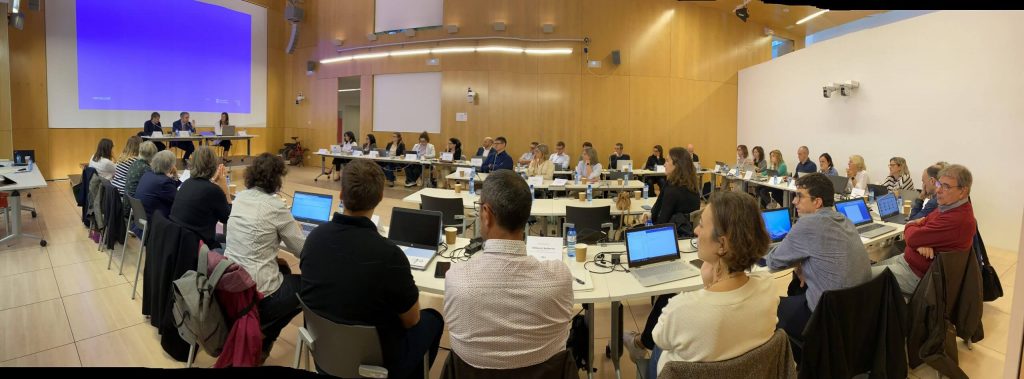The media recently highlighted the latest astronomical discovery: on the nearest star, Proxima Centauri, just 4.25 light-years away (40 trillion kilometres), there is a very promising planet, “Proxima b”, which is the right size and in the right place to provide just the right temperature to support life, much like Earth.
This is news to excite everyone’s imagination. Imagine, for example, the Institute of Space Studies of Catalonia (IEEC) bolstering its study of the location of Proxima b and proposing a fleet of small nanosatellites to send sensors and other devices to it. At the same time, the Catalonia Institute for Energy Research (IREC) proposes a propulsion system for the nanosatellites, making it feasible to cut the journey time to a few years by using gravitational momentum from planetary orbits. The Telecommunications Technological Center of Catalonia (CTTC) also develops a robust communication system to ensure data flows between Earth and the craft we send into space, which return measurements taken by their sensors. The Computer Vision Center (CVC), the Institute of Chemical Research of Catalonia (ICIQ), the Institute of Photonic Sciences (ICFO), the Institute for Research in Biomedicine (IRB), the Institute for High Energy Physics (IFAE) and others develop various physical, chemical and biological cameras and sensors to send to the planet and take appropriate measurements. The Centre for Demographic Studies (CED) and the Catalan Institute for Human Palaeoecology and Social Evolution (IPHES) also study what the first human colony on this new planet would be like, from a demographic and social perspective, and how these pioneers would manage to get there, overcoming all major difficulties to make it viable. The Institute of Agrifood Research and Technology (IRTA), the Centre for Research in Agricultural Genomics (CRAG), the Catalan Institute of Nanoscience and Nanotechnology (ICN2), the August Pi i Sunyer Biomedical Research Institute (IDIBAPS), the Centre for Genomic Regulation (CRG) and others could propose biological solutions for alternative atmospheres with different gas compositions and environments with a specific nutrient profile, which would serve to provide a sustainable food supply for humans settling there. The International Center for Numerical Methods in Engineering (CIMNE) could use the data from the nanosatellites to design buildings (or ships) constructed with local materials and provide homes for a human colony, sufficiently resistant to the climate on Proxima b. And the Centre de Recerca en Economia Internacional (Centre of Research into International Economics, CREI) could calculate the research and development costs for these technologies and how the to organise the human base on Proxima b, with a sustainable economic system that minimises economic inequalities and ensures the welfare of the colonists. The Vall d’Hebron Research Institute (VHIR) and Institute for Bioengineering of Catalonia (IBEC) would provide a robotic telemedicine system for the brave travellers, while the Girona Biomedical Research Institute (IDIBGI) would monitor the heart dynamics of crews and colonists, and the Institute for AIDS Research (IrsiCaixa) would optimise the risks posed by ageing to increase the life expectancy of space explorers.
There are so many things we could set in motion if resources and time were a little more plentiful. Or maybe it is just a question of organisation.
Would it be worth organising large, interdisciplinary, single-topic projects among strong research and technology institutions, with joint strategy layer for tackling major challenges, or… is it just a matter for science fiction?
GenderTalent
Bruna Vives
18/11/2022
The CERCA Institute has launched ÀGORA, an unprecedented and innovative programme for the managers of CERCA centres. ÀGORA focuses on management training and strategic challenges in managing research and innovation.



